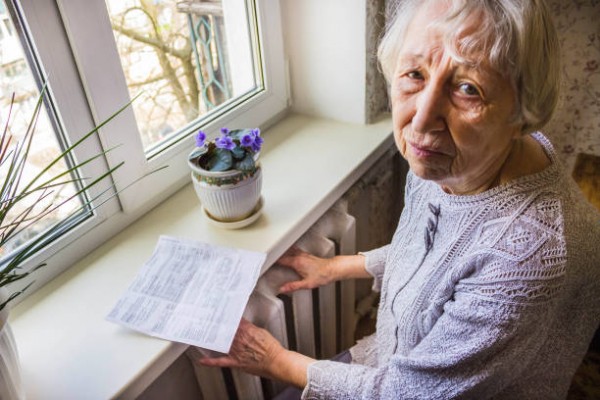Addressing Older Adults’ Environmental Impact Crucial for Climate Change, New Paper Finds
GEOG researcher finds seniors are the second-greatest contributors to greenhouse gas emissions, makes suggestions
According to a new Nature Climate Change paper by Department of Geographical Sciences Professor Kuishuang Feng, adults over the age of 60 are having an increasingly negative impact on greenhouse gas emissions compared to other segments of the world’s population.
While 45-59 year-olds remain the greatest contributor to greenhouse gas emissions worldwide, Feng and his co-authors—from the Norwegian University of Science and Technology, the University of Tokyo, Tianjin University, University College London, and Tsinghua University—suspect that with there being a 7.5% greenhouse gas emissions increase from 2005-2015 among adults 60 and up, the group “will probably soon overtake the 45–59 group as the largest contributor.”
“Our study is not meant to blame senior households, because it is not really their fault,” clarified Feng. “Our study was to really understand the problem and see how we can link those findings to other sustainable development goals, and to see how we can address this climate change issue in a feasible, more equitable way.”
It’s not necessarily that older Americans—who researchers found to have the highest per-capita contributions alongside Australians—don’t care about the country’s goal of reaching carbon neutrality by 2050, he went on to explain. Rather, lifestyle coupled with inequality could be complicating the issue.
“In Europe, seniors tend to live in an apartment, not a single-family house,” Feng said. “Here it is very different; here older people tend to live in a single-family house with only one or two people. If we have a larger house we tend to purchase more products, household appliances, and in general, consume more energy.”
The construction of older Americans’ homes play a part too. Since many older adults live in older homes, those homes are more likely to have poor insulation and need more gas and electricity for heating in the winter and cooling in the summer. And, compared to younger populations, 60+ people tend to be more reliant on those heating and cooling systems; younger, more-mobile generations tend to spend more time outside of and away from their homes, whereas older adults do the opposite.
With 21%-52% of the world’s population projected to be adults over 60 by the year 2100, Feng and his co-authors believe reducing older Americans’ carbon footprint should be a greater priority. Potential solutions, as outlined in the Nature Climate Change paper, include providing older adults with the financial support needed to make their homes more energy efficient; encouraging them to move into retirement communities by making them nicer and more affordable; and making public transportation more accessible.
“Climate funds should consider this as well, and not always [be] put to technology,” said Feng. “We need to think about the consumption side [of climate change]; that actually drives the whole production. Without consumption, we don’t have production. It’s one system.”
Article originally posted by UMD College of Behavioral and Social Sciences. Photo of an older woman sitting in front of a heater is courtesy of iStock.
Published on Wed, 03/23/2022 - 14:15


